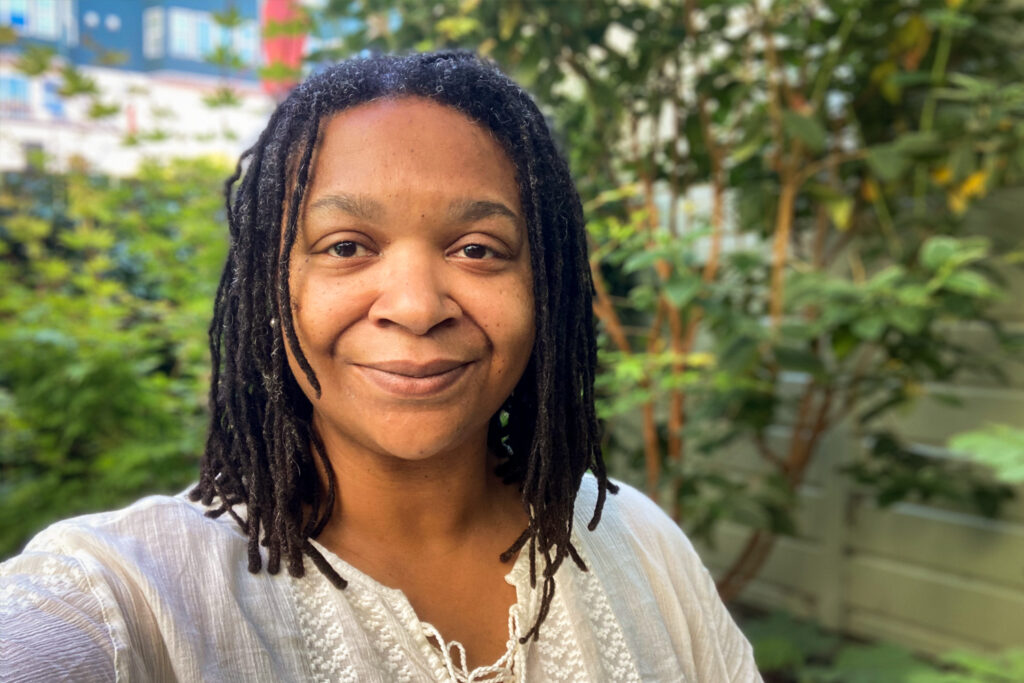A new program invites students to explore how culture shapes communication
Undergraduate students in the new Notation in Cultural Rhetorics program pursue a passion project alongside their major and come away with culturally-informed oral and written communication skills. Applications for fall quarter are due May 26.
Before beginning classes at Stanford, Briana Garcia imagined having to leave some aspects of herself at the classroom door; that her Mexican-American identity and culture wouldn’t be considered relevant to her academic studies. That changed when she met Harriett Jernigan, coordinator of Stanford’s new Notation in Cultural Rhetorics program.
“Dr. Jernigan said, ‘Here, everything about you is academic,’” Garcia, now a junior, says. “Having her that first year made me realize that all of these things about me matter.”

Harriett Jernigan, coordinator of Stanford’s new Notation in Cultural Rhetorics program, says the program celebrates students from all backgrounds. “The notation reminds you that you belong here. You’re not here by coincidence or by accident. You are here by design,” she says. (Image credit: courtesy of Harriett Jernigan)
Garcia is part of the inaugural cohort of students working toward a Notation in Cultural Rhetorics (NCR), a new program offered by the Program in Writing and Rhetoric. The notation, similar in some ways to a minor, emphasizes the rhetorical traditions and practices of communities of color that have not always been foregrounded in the study of speaking and writing, and encourages students to explore how race, ethnicity, gender, and sexuality shape how we communicate and engage with the words of others.
Adam Banks, professor of education and faculty director of the Program in Writing and Rhetoric (PWR), said the notation is designed to catalyze critical thinking about a range of issues and challenges facing society.
“The notation equips students to think deeply and carefully about how to solve problems and build relationships, so that the ideas they have for having impact on the world, the ideas they have about taking what they’ve learned in their majors and bringing them into the world, can have impact,” Banks said.
Upon completion of the program, which combines coursework, advising, and a capstone portfolio, students earn a designation on their transcript indicating advanced work in culturally-informed communication. They’ll leave with cross-disciplinary writing and oral presentation skills, and a portfolio that can demonstrate their expertise to prospective graduate programs or employers. The first NCR class cohort will complete its work in the spring of 2024.
The program is designed to work with any major, across the humanities, social sciences, the arts, or STEM fields. “It’s built with the self-design element for students so that they can think about where these issues come to bear in their major areas of study,” said Banks. “That way, they’re doing work that is connected rather than seeming entirely separate from their main coursework.”
The NCR creates a space for students to pursue a passion project or examine a cultural or rhetorical practice in a way that’s not typically covered by a major or minor. Sophomore Antonio Cruz Preciado, a CSRE major, is interested in the factors that influence identity formation. For his portfolio, he’s focusing on how Latino diaspora culture in urban areas evolved through music and religion. While he is still narrowing down his topic, Preciado describes his experience in the notation as a personal journey that has deepened his understanding of cultural rhetoric.
“The notation can mean so many things, and it’s up to the individual—it can be academic while still emotionally engaging,” he says.
Students from all backgrounds and all majors are encouraged to apply. Jernigan says thus far the program has attracted students studying symbolic systems; science, technology & society; sociology; communications; African and African American studies; comparative studies in race & ethnicity; and art, working on portfolios that present a wide range of ideas through a cultural-rhetorics lens, from how intercultural communication intersects with deliberative democracy to societal perceptions of Black and Latinx hair.
“The notation reminds you that you belong here,” she says. “You’re not here by coincidence or by accident. You are here by design.”
Notation in Cultural Rhetorics is currently accepting applications for fall quarter. Applications are due May 26. The Program in Writing and Rhetoric also offers the Notation in Science Communication (NSC), now in its 10th year.